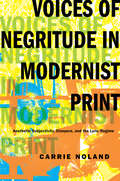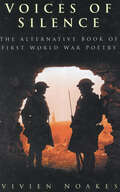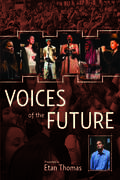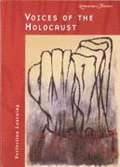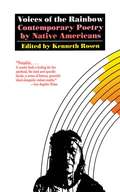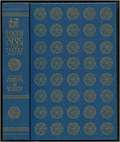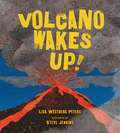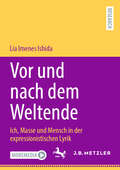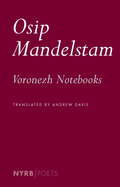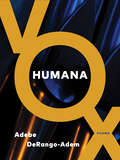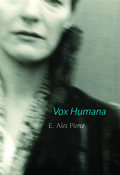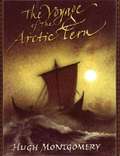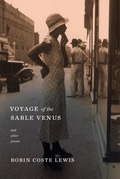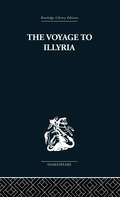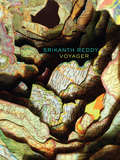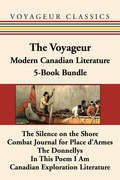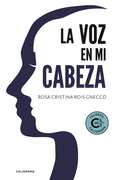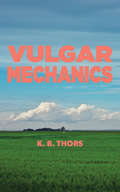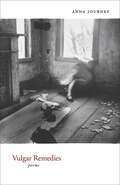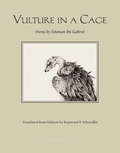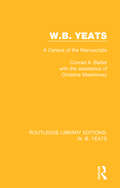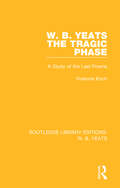- Table View
- List View
Voices of Negritude in Modernist Print: Aesthetic Subjectivity, Diaspora, and the Lyric Regime (Modernist Latitudes)
by Carrie NolandCarrie Noland approaches Negritude as an experimental, text-based poetic movement developed by diasporic authors of African descent through the means of modernist print culture. Engaging primarily the works of Aimé Césaire and Léon-Gontran Damas, Noland shows how the demands of print culture alter the personal voice of each author, transforming an empirical subjectivity into a hybrid, textual entity that she names, after Theodor Adorno, an "aesthetic subjectivity." This aesthetic subjectivity, transmitted by the words on the page, must be actualized—performed, reiterated, and created anew—by each reader, at each occasion of reading. Lyric writing and lyric reading therefore attenuate the link between author and phenomenalized voice. Yet the Negritude poem insists upon its connection to lived experience even as it emphasizes its printed form. Ironically, a purely formalist reading would have to ignore the ways formal—and not merely thematic—elements point toward the poem's own conditions of emergence. Blending archival research on the historical context of Negritude with theories of the lyric "voice," Noland argues that Negritude poems present a challenge to both form-based (deconstructive) theories and identity-based theories of poetic representation. Through close readings, she reveals that the racialization of the author places pressure on a lyric regime of interpretation, obliging us to reconceptualize the relation of author to text in poetries of the first person.
Voices of Negritude in Modernist Print
by Carrie NolandApproaches Negritude as an experimental, text-based poetic movement developed by diasporic authors of African descent through the means of modernist print culture
Voices of Silence: The Alternative Book of First World War Poetry
by Vivien NoakesThe poetry of the First World War has determined our perception of the war itself. This volume features poetry drawn from old newspapers and journals, trench and hospital magazines, individual volumes of verse, gift books, postcards, and a manuscript magazine put together by conscientious objectors.
Voices of the Future
by Etan Thomas"The poetic voice of his generation."-Kareem Abdul-Jabbar"Etan Thomas is breaking it down for our young minds on how to be a vital part of this challenging world we all live in. Let's give it up for Etan."-Spike LeeBroken down by a variety of subject matter, each section begins with a selection from an interview between NBA star Etan Thomas and political sportswriter Dave Zirin, followed by a Thomas poem and the writings of talented young poets.Etan Thomas is an author, columnist, and the recipient of the 2010 National Basketball Players Association Community Contribution Award.
Voices of the Holocaust
by Literature Thought SeriesContains short stories, poems, biographical accounts, and essays about the Holocaust intended to help readers answer the question: Could a holocaust happen here?
Voices of the Rainbow: Contemporary Poetry by Native Americans
by Kenneth RosenKenneth Rosen's haunting volume of poetry proves that the powerful and moving voice of Native Americans must be heard. More than two hundred poems embrace anguish, pride, and hope, representing twenty-four tribal affiliations, including, Sioux, Pawnee, Choctaw, Seminole, Laguna Pueblo, Cherokee, Anishinabe, Mohawk, Seneca, and Seminole. An Indian leader once asked a U.S. president: "What visions, under the white man's way, are offered that will cause today's children to want tomorrow to come?" In a sense, each poem in this volume is an attempt to confront and answer that very question.
Voices Within the Ark: The Modern Jewish Poets
by Howard Schwartz Anthony RudolfThis anthology gathers together in one volume representative selections of the finest poetry written by Jewish poets since the turn of the century.
Volcano Wakes Up
by Lisa PetersPlayful, kid-friendly poems from five alternating points of view explore the volcanic process and its effect on the surrounding land, flora, and fauna. From the lava crickets to the ferns, everyone has something to say about it! Follow one day--from sunrise to moonrise--on the slopes of a young, about-to-shout volcano. <P><P>Science-loving kids will get a kick out of this exciting look at an erupting volcano, and the creative poems offer something for everyone.
Vor und nach dem Weltende: Ich, Masse und Mensch in der expressionistischen Lyrik
by Lia Imenes IshidaDieses Buch untersucht die Begriffe „Ich“, „Masse“ und „Mensch“ in der lyrischen Produktion des expressionistischen Jahrzehnts. Die detaillierte Analyse der Einzelwerke von Jakob van Hoddis, Alfred Lichtenstein, René Schickele, Georg Heym, Alfred Wolfenstein, Paul Boldt, Ernst Stadler und Ludwig Rubiner erlaubt zudem einen Einblick in diese wichtige Epoche der deutschen Literatur sowie eine Differenzierung ihrer Hauptströmungen und Phasen. Die Autorin zeigt auch, wie sehr diese literarische Epoche durch den Ersten Weltkrieg bestimmt wurde.
Voronezh Notebooks
by Osip Mandelstam Andrew DavisOsip Mandelstam is one of the greatest twentieth-century poets in any language, and his work, which sounds the depths of the Russian language, has presented a fertile and constant challenge to translators. Composed after Mandelstam's unexpected release from Stalin's prisons, Voronezh Notebooks covers two years of his life, from the spring of 1935, when in a state of physical and mental collapse he traveled south into exile with his wife, to May 1937, not long before the couple was allowed to return to Moscow (which was followed by Mandelstam's final arrest), and the poems constitute a single sequence and a kind of last testament. Meditating on death and survival, on the powers that be and the power of poetry, on marriage, friendship, and memory, challenging Stalin between lines that are full of the sights and sounds of the steppes, blue sky and black earth, the roads, winter breath, spring with its birds and flowers and bees, the notebooks are a continual improvisation and unapologetic affirmation of poetry as life. The extraordinary concentration, powerful imagery, and strange echoing music of Mandelstam's sequence come forth in English as never before in Andrew Davis's inspired new translation.
Vox Humana
by Adebe DeRango-AdemVox Humana (Latin for "human voice") is driven by a sense of political urgency to probe the ethics of agency in a world that actively resists the participation of some voices over others.In and through literary experiments with word and sound, utterance and song, Vox Humana considers the different ways a body can assert, recount, proclaim, thus underscoring the urgency of doing so against the de-voicing effects of racism and institutional violence.As the title also represents an organ reed that sounds like the human voice, so DeRango-Adem shares her reclaiming of the instrument traditionally accessed by the white establishment.These poems are born from the polyphonic phenomenon of the author's multilingual upbringing. They are autobiographical and alchemical, singular and plural, but, above all, a celebration of the (breath) work required for transformation of society and self.
Vox Humana
by E. Alex PiercePoems of great passion and tenderness, as close to rapture as a writer can get and still hold on. E. Alex Pierce's voice can be heard echoing down the long corridors of memory and myth. It's not that these poems live in the past; instead, they manage to bring it back to life with uncanny sensual details and an urgency that makes you realize some fires never really go out. Vox Humana is all lilt and discipline in its courtliness, its surrender to the theatre of the moment at its most alive.
Voyage of the Arctic Tern
by Hugh MontgomeryNarrated in stirring verse that demands to be read aloud, this epic adventure, full of atmospheric line illustrations, will appeal to all children and adults who love a thrilling story, memorably told. Things happen here in Plymouth in the winter, And of such things you'd surely never learn. So take your seat and listen while I tell you Of Bruno and his ship, The Arctic Tern. . . . Treason, treachery, and treasure - here is a classic seafaring tale that sweeps across the centuries and sails to different lands, from Spain to the southwest of England. At its heart is Bruno, the skipper of The Arctic Tern, who has been cursed to a life of eternal wandering after succumbing to a moment of greed and betrayal some thousand years ago. Bruno's quest for release brings him to the court of the King of Spain and into battle with an ancient adversary, the villainous pirate Mad Dog Morgan. Can Bruno and his crew set right the wrongs of the past and present? Will good triumph over evil? Can the captain of The Arctic Tern ever find the redemption that he seeks?
Voyage of the Sable Venus
by Robin Coste LewisA stunning poetry debut: this meditation on the black female figure throughout time introduces us to a brave and penetrating new voice.<P><P> Robin Coste Lewis’s electrifying collection is a triptych that begins and ends with lyric poems considering the roles desire and race play in the construction of the self. The central panel is the title poem, “Voyage of the Sable Venus,” a riveting narrative made up entirely of titles of artworks from ancient times to the present—titles that feature or in some way comment on the black female figure in Western art. Bracketed by Lewis’s autobiographical poems, “Voyage” is a tender and shocking study of the fragmentary mysteries of stereotype, as it juxtaposes our names for things with what we actually see and know. Offering a new understanding of biography and the self, this collection questions just where, historically, do ideas about the black female figure truly begin—five hundred years ago, five thousand, or even longer? And what role has art played in this ancient, often heinous story? From the “Young Black Female Carrying / a Perfume Vase” to a “Little Brown Girl / Girl Standing in a Tree / First Day of Voluntary / School Integration,” this poet adores her culture and the beauty to be found within it. Yet she is also a cultural critic alert to the nuances of race and desire and how they define us all, including herself, as she explores her own sometimes painful history. Lewis’s book is a thrilling aesthetic anthem to the complexity of race—a full embrace of its pleasure and horror, in equal parts.<P> Winner of the National Book Award
The Voyage to Illyria: A New Study of Shakespeare (Select Bibliographies Reprint Ser.)
by Kenneth MuirFirst published in 1937. This study argues that the plays of Shakespeare must be studied by comparison with each other and not as separate entities; that they must be related to one another, to the poems and to the Sonnets; that each individual play acquires a deeper significance from its setting in the corpus. Muir and O'Loughlin's critical analysis takes place against the personality of Shakespeare, asserting that that despite all their diversities a single mind and a single hand dominate them and that they are the outcome of one man's critical and emotional reactions to life.
Voyager
by Srikanth ReddySrikanth Reddy's second book of poetry probes this world's cosmological relation to the plurality of all possible worlds. Drawing its name from the spacecraft currently departing our solar system on an embassy to the beyond, Voyager unfolds as three books within a book and culminates in a chilling Dantean allegory of leadership and its failure in the cause of humanity. At the heart of this volume lies the historical figure of Kurt Waldheim--Secretary-General of the U.N. from 1972-81 and former intelligence officer in Hitler's Wehrmacht--who once served as a spokesman for humanity while remaining silent about his role in the collective atrocities of our era. Resurrecting this complex figure, Reddy's universal voyager explores the garden of forking paths hidden within every totalizing dream of identity.
The Voyageur Modern Canadian Literature 5-Book Bundle: The Silence on the Shore / Combat Journal for Place d'Armes / The Donnellys / In This Poem I Am / Canadian Exploration Literature
by Hugh Garner Paul Stuewe James Reaney Alan Filewod Robin Skelton Harold Rhenisch Germaine Warkentin Scott Symons Christopher ElsonVoyageur Classics is a series of special versions of Canadian classics, with added material and new introductions. In this bundle we find five classic works of twentieth century fiction, drama and poetry, a period when Canada’s literary identity was shaped. Originally published in 1962, The Silence on the Shore is considered by many critics to be renowned Hugh Garner’s best, most ambitious novel. Originally published in 1967, Combat Journal for Place d’Armes was initially met with shock and anger by most reviewers but has become a literary touchstone. The Donnellys tells the tale of a secret society and a massacre that shocked the Canadian public, a story overlooked by the artistic community until Reaney’s 1975 play elevated the events to the level of legend. In This Poem I Am presents the best of poet Robin Skelton’s adventurous poetry. And Exploration Literature is a groundbreaking collection of early writing inspired by the opening of a continent, an entry point into the beginnings of a literate response to the awe and wonder inspired by an unfolding geography. Includes Canadian Exploration Literature Combat Journal for Place d’Armes The Donnellys In This Poem I Am The Silence on the Shore
Una voz dulce resonó en mi oído
by Rosalía de CastroPoesía Portátil suma a su colección la gran autora de las letras gallegas y precursora de la poesía española moderna: Rosalía de Castro. Rosalía de Castro es, sin duda, una de las voces poéticas más importantes de la lírica española del Romanticismo del siglo XIX. Gran precursora de la modernidad poética, la autora sigue siendo, incluso hoy en día, la viva imagen del espíritu y el alma máter literaria de su Galicia natal. Trabajó por defender las letras gallegas, devolviéndoles la dignidad y el carácter culto de una lengua literaria, y denunció la pobreza rural y la precariedad de su pueblo. Figura clave del rexurdimiento gallego, escribió tanto en su lengua materna –el gallego– como en castellano. Sus versos, cargados de pesimismo pero con una sensibilidad sublime, han inspirado a otros grandes autores como Antonio Machado, Luisa Carnés o Juan Ramón Jiménez. Dicen que antes de morir pidió ver el mar y la crítica apunta que esa era la imagen que tenía Rosalía de Castro de la muerte en sus poemas: la inmensidad del mar en la que descansar. El escritor y traductor Mauro Armiño, Premio Nacional a la Mejor Traducción (1979) por trasladar al castellano la poesía en gallego de Rosalía de Castro, se ha encargado de la antología de esta edición.«No cuidaré ya los rosalesni los palomos que suyos tengo;que sequen, como yo me seco,que mueran, como yo me muero.»
La voz en mi cabeza
by Rosa Cristina Rois GneccoCada recuerdo que visita tu corazón te acerca a esa voz que te dice quién eres. Cuando tu voz es más fuerte que tu miedo, su única misión es ser escuchada. El ruido de fondo altera tus sentidos. No escu chas nada. Son mil voces las que hablan en tu cabeza. Muchas se quedan allí por largo tiempo. Solo una le habla a tu corazón . Si has aprendido a escuchar con él, sientes tu verdadera voz. Esa voz esboza lo más secreto de tu ser y publica aquello que es exclusivo de tu intimidad. La voz en mi cabeza tiene cuarenta y dos años. Es una conversación consciente entre el conoci miento interior y el mundo exterior. Es un diálogo sobre el día a día, el miedo, los sueños, la intuición, el amor, sus capr ichos y tú. La voz en mi cabeza reconoce mi vida y mis silencios. No es una historia y tampoco soy yo. Es una voz. Es mía yes tuya.
Vrajanatha Vadajena
by Janaki Ballabha MohantyOn the life and works of Oriya Poet Vrajanatha Vadajena.
Vulgar Mechanics
by K. B ThorsGrappling with queerness and trauma from Alberta to Brooklyn, powering through body, sex, and gender to hit free open roads <P><P> In Vulgar Mechanics, K. B. Thors seeks to invent new strategies for survival through the two most basic tools available to the speaker: language and the body. The work begins in collapse, the poems acting as witness to the death of a mother. The speaker documents how, as her mother's physical body disintegrates, hidden knowledge rises to the surface in the form of "seismic legacy data." As dark secrets are released, the desire for justice demands improvisation. Moving from the fracked landscapes of the prairies to the steep verticality of New York, this is a collection concerned with hunger, anger, and the shifting fault-lines between play and pain. The poems celebrate the body as a vehicle of excavation and self-determination in a world in which there may be no such a thing as a safe word. <P><P>Thors pushes against the boundaries of language - the material of sense, meaning - in order to claim a quantum vision of the self, one who transforms trauma into energy through its own multiplicity. The body becomes both ghost and machine, burning the past in its engine to make something beautiful and new, "a thunder egg / bucking the fire pit."
Vulgar Remedies: Poems (Media & Public Affairs)
by Anna Journey"Anna Journey's poetry is really magical." -- David Lynch, director of Blue Velvet and creator of Twin Peaks"Anna Journey's second collection of poems is wonderful and brings something precise and wild out of a vivid night, an imagery that finds its own necessary music, like sudden isolated birdsongs at dawn. The multiplying shadows of the mind are made exterior here, surprisingly illustrated with anecdotal thought. And Dante no longer concludes that all lovers are martyrs. I'm so happy to have this work in my life." -- Norman Dubie, author of The Volcano"Anna Journey, in her new book of poems, Vulgar Remedies, creates an alchemical self whose shimmering limbic/alembic lyrics distill the mysterious terrors of childhood, the dangerous passions of adults, into her own honey-dusk 'voodun': protective, purified to gold. Poetry is always a time machine: here we are invisible travelers to a bewitched past, a beautifully occluded future. These poems are erotic, vertiginous, revelatory, their dazzling lyric force reflecting profound hermetic life." -- Carol Muske-Dukes, author of Twin Cities
Vulture in a Cage: Poems by Solomon Ibn Gabirol
by Raymond P. Scheindlin Solomon Ibn Gabirol"Vulture in a cage," Solomon Ibn Gabirol's own self-description, is an apt image for a poet who was obsessed with the impediments posed by the body and the material world to the realization of his spiritual ambition of elevating his soul to the empyrean. Ibn Gabirol's poetry is enormously influential, laying the groundwork for generations of Hebrew poets who follow him--rocky and harsh, full of original imagery and barbed wit, and yet no one surpassed him for the limpid beauty of his devotional verse. His poetry is at once a record of the inner life of a tormented poet and a monument to the Judeo-Arabic culture that produced him. This book contains the most extensive collection of Ibn Gabirol's poetry ever published in English.From the Trade Paperback edition.
W. B. Yeats: A Census of the Manuscripts (Routledge Library Editions: W. B. Yeats #1)
by Conrad A. Balliet Christine MawhinneyThis title, first published in 1990, is a census of the manuscripts of William Butler Yeats. The census includes not only his books, plays and poetry but also the whereabouts of many of Yeats’s letters and speeches, and will be of particular interest to students of literature. For further reading please refer to Conrad A. Balliet’s chapter ‘A Supplement to W. B. Yeats: A Census of the Manuscripts’ in Richard J. Finnerman’s (Editor) Yeats: An Annual of Critical and Textual Studies (Volume XIII, 1995, The University of Chicago Press).
W. B. Yeats: A Study of the Last Poems (Routledge Library Editions: W. B. Yeats #5)
by Vivienne KochIn this study, first published in 1951, the author examines the poetry of Yeats’s last years, that poetry which reached and held to the ‘intensity’ which he had striven for all his life. Vivienne Koch explores the ways in which the great but troubled poems derive their energy from suffering, and examines thirteen of his last poems in detail, each with a slightly different focus. This title will be of interest to students of literature.
